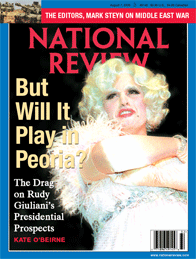There was a second consecutive state supreme court decision against same-sex marriage today (in Washington state), but this is a less a disaster than it might seem. Many years ago Andrew Sullivan argued that this policy would advance through a mix of methods, and in a patchwork pattern. He is turning out to be right. Court decisions certainly paved the way in both Canada and the US. Those court decisions have undercut any argument that gay marriage is destroying society: no such thing has happened as gay couples have proved to be just as boring (or exciting) as straight couples.
Legislatures now have some room to work - hence Connecticut created Civil Union laws, and California has come down in favor of equality for gay marriage. Now individual politicians running for state wide office are using the issue as an argument to vote for them.
"I think same sex marriage should be legal. I will propose a bill to permit that to be the case in the state of New York."
Elliott Spitzer, almost certainly next governor of New York State
http://time.blogs.com/daily_dish/2006/07/Washington's_cou.htmlSpitzer, almost certainly, will run for president at some date, but he is not hedging his bets in any way.
As long as it exists in only one state, gay marriage remains in some danger. Once you get eight or more states where it is recognized, then the game is over. My guess for the first eight states: Massachusetts, New Jersey, New York, Connecticut, California, Rhode Island, Oregon and, perhaps, Illinois. Wht Illinois, even though half the state is in the South? Because that state was the first to legalize homosexual behaviour (in 1961), and because it contains a world city.
World cities have been at the forefront of celebrating gay people. And world cities
enjoy being world cities. The more anti-gay legislation is seen as unclassy and small minded, the more it will be disputed.
[In the UK,
all the rights of marriage have been extended to gay people via "civil partnerships." I guess Britain will probably continue to use this old fashioned language for longer than necessary, even as the population just uses "wed/married/hitched", and then all of a sudden in a burst of modernization will adopt the term "marriage" as a form of tidying up.
It is hard to express why this issue is so important. It is not really about hospital visits or social acceptance (many/most hospitals have accepted same-sex partners of patients for quite some time now), but of the
impact of the creation of a widely know legal formualary for gay relationships on younger people who are just recognizing themselves. When you know that there is a state performed gay union rite, you will not ever feel as you grow up that you are alone. It is due to an obligation to those who will come after us that gay people, and not just activists, have come to see this issue as crucial.]

